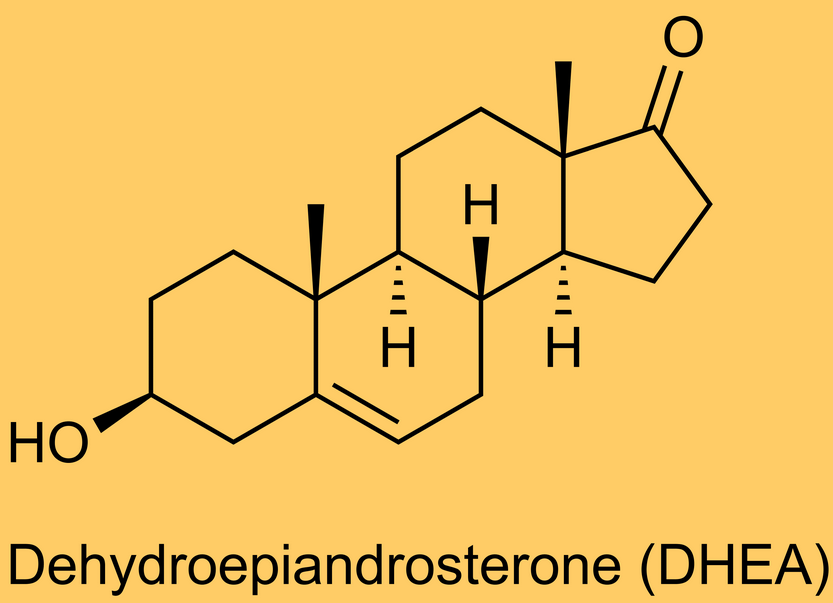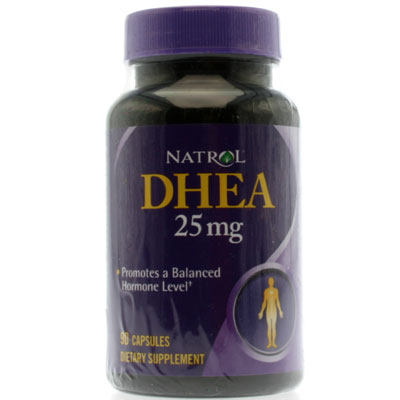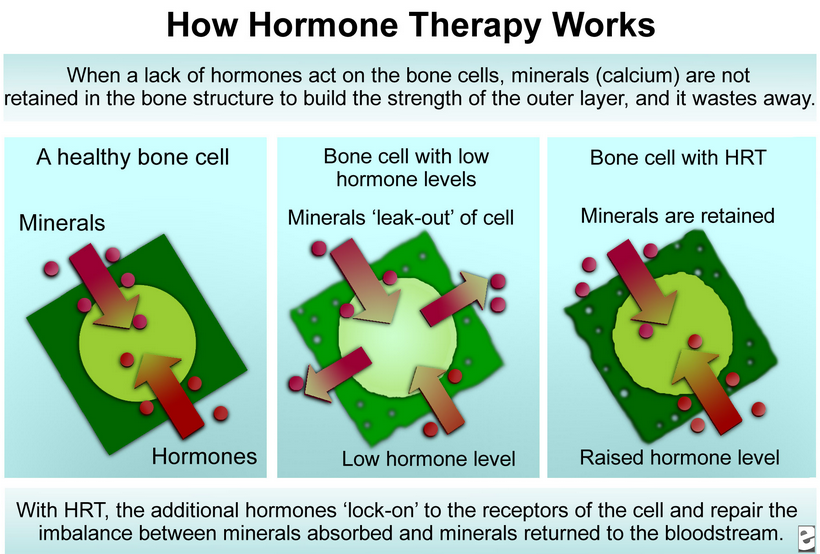Dihydroepiandrosterone Replacement, DHEA -The Mother of All Hormones
Dihydroepiandrosterone Replacement, DHEA -The Mother of All Hormones)
Dihydroepiandrosterone or as commonly referred to as DHEA is the most abundant hormone that occurs naturally in the human body. It is referred to as the mother of all hormones because it is responsible for all metabolisms in the body. The hormone is manufactured in the brain and adrenal glands.
The levels of DHEA are highest in the fetus stage and continue to increase until a person is at the age of 30. Afterward, the level begins to drop rapidly as the person continues to age. This decline is the one that enhances the aging process. Studies show that by the time we are 70 the level of DHEA production reduces to around 10% less of what we used to produce when we were younger. The work of this hormone is to support as well as to regulate the functioning of other hormones in the immune system.

Given that DHEA is very critical for the normal functioning of other cells, if anything goes wrong with the hormone all other hormones are affected. If the level of DHEA declines, it means that its functions cease to balance. In this case, this imbalance brings about an imbalance of all other hormones like estrogen, progesterone, cortisol and testosterone. Hormonal imbalances lead to medical conditions like depression, low sex drive, and anxiety among others.
Facts about DHEA
DHEA is used by the body to produces sex hormones such as progesterone, testosterone, estrogen and cortisol. In addition to this, the hormone is also responsible in regulating the levels of insulin and cholesterol in the body. If the levels of insulin and cholesterol increase beyond normal, then there is bound to be inevitable damage in the body leading to health conditions like obesity, high blood pressure and heart disease. It also decreases the risk of cancer and diabetes in addition to enhancing the immune system. It also prevents the breast cancer in women in premenopausal stage and in men prostate cancer.
DHEA is probably the most important hormone in the body. It plays a crucial role in metabolism and is the foundation of sex hormones in both women and men. It is basically responsible for the normal functioning of our bodies. It is a precursor hormone which means that it is responsible for the production and normal functioning of other hormones in the body. It is surely the mother of all hormones because without it, the other hormones would be useless or they would not even exist.
DHEA is responsible for maintaining a balance in the metabolism process. It does this by enhancing loss of excess fats, increasing tissue mass, and enhancing formation of new bones as well as inhibiting their degeneration.
 DHEA replacement therapy is performed on patients with low levels of the hormone. When this level declines as we have seen the balance of other hormones is offset. Mostly patients will come in with symptoms of hormonal imbalances. The test is performed by an expert who runs a couple of tests to find out the level of DHEA. When done correctly, the replacement therapy helps restore the hormonal imbalance and reverses symptoms associated with this condition. When combined with the right diet and regular exercises, DHEA is crucial in restoring hormonal balance.
DHEA replacement therapy is performed on patients with low levels of the hormone. When this level declines as we have seen the balance of other hormones is offset. Mostly patients will come in with symptoms of hormonal imbalances. The test is performed by an expert who runs a couple of tests to find out the level of DHEA. When done correctly, the replacement therapy helps restore the hormonal imbalance and reverses symptoms associated with this condition. When combined with the right diet and regular exercises, DHEA is crucial in restoring hormonal balance.
It is also effective in reversing conditions caused by hormonal imbalances such as impaired memory and concentration ability, loss of lean muscles, depression and reduced focus which most people take as conditions associated with old age and therefore inevitable.
Factors that may cause DHEA levels to decline
Diet: First of all our diet plays a major role in our well-being. What you eat translates to the health of your body. Eating a balanced diet works miracles in preventing hormonal imbalances. Lack of exercise will also increase your chances or hormonal imbalance.
Toxics: toxic compounds such as pesticides and herbicides find their way into our body systems either through the food we eat or the water we drink. These compounds are known to offset hormonal imbalances like DHEA.
Stress: this is one of the major factors that may throw your hormones completely off balance. When DHEA is affected by stress that means that the production of cortisol that is supposed to help you deal with the situation is not produced efficiently.
Importance of adequate levels of DHEA
When the hormone DHEA is in adequate levels, it leads to restoration of lean muscles, improved memory, increased stamina, improves the fat ratio, increased testosterone levels, increased concentration and focus among others. All these functions make DHEA the ultimate mother of all hormones because it has direct effect on the production and functions of other hormones.
Find out more about DHEA by visiting www.awaremednetwork.com today. Get your healing through the expert advice of Dr. Akoury who has helped thousands of patients get back on their feet. She has years of experience in the field of medicine. AwareMed provides you with not only information about illnesses but we also help you solve them.
Dihydroepiandrosterone Replacement, DHEA -The Mother of All Hormones)







 Testosterone is needed by the women just like men need it. In case of a drop in its level below the optimum a woman may experience such symptoms as Low libido, fatigue and depression among other symptoms of low testosterone in women. Of the many symptoms, depression is a call for concern as it leads to even other bigger problems. Depression leads even to suicide among other health risks that can be directly linked to it. Testosterone is the hormone responsible for muscle and bone development. Obviously males have a higher level of testosterone than women during adolescent years, which lead to a more muscular stature. This continues into adulthood and is the main reason why males have a bigger
Testosterone is needed by the women just like men need it. In case of a drop in its level below the optimum a woman may experience such symptoms as Low libido, fatigue and depression among other symptoms of low testosterone in women. Of the many symptoms, depression is a call for concern as it leads to even other bigger problems. Depression leads even to suicide among other health risks that can be directly linked to it. Testosterone is the hormone responsible for muscle and bone development. Obviously males have a higher level of testosterone than women during adolescent years, which lead to a more muscular stature. This continues into adulthood and is the main reason why males have a bigger  There are also scenarios when the levels of androgens may be excess in the body of women. This is referred to as Hyperandrogenic. Its symptoms include hirsutism, acne and polycystic ovary syndrome. Through social research it has been suggested that high androgen levels cause aggressive behavior in men and women and as a consequence may cause depression. Higher androgen values are more pronounced at young ages and before and after delivery of a baby. It has also been found that depression in pubertal girls correlated best with an increase in testosterone levels in contrast to the common belief that environmental factors during the time of growing up might be responsible for mood swings in girls.
There are also scenarios when the levels of androgens may be excess in the body of women. This is referred to as Hyperandrogenic. Its symptoms include hirsutism, acne and polycystic ovary syndrome. Through social research it has been suggested that high androgen levels cause aggressive behavior in men and women and as a consequence may cause depression. Higher androgen values are more pronounced at young ages and before and after delivery of a baby. It has also been found that depression in pubertal girls correlated best with an increase in testosterone levels in contrast to the common belief that environmental factors during the time of growing up might be responsible for mood swings in girls.





 The importance of
The importance of  After testosterone replacement therapy most depression patients break free from the bonds of depression. Depression is major problems that men deal with today. The number of men held victims by these two conditions increase rapidly with low testosterone levels being a major contributor to these conditions.
After testosterone replacement therapy most depression patients break free from the bonds of depression. Depression is major problems that men deal with today. The number of men held victims by these two conditions increase rapidly with low testosterone levels being a major contributor to these conditions.










 Eczema Diagnosis and Treatment for a glowing skin
Eczema Diagnosis and Treatment for a glowing skin


 The estrogen hormone plays crucial roles in the life of a woman. Among other things this hormone is responsible for the maintenance of
The estrogen hormone plays crucial roles in the life of a woman. Among other things this hormone is responsible for the maintenance of 




 Understanding Xenoestrogens And Breast Cancer
Understanding Xenoestrogens And Breast Cancer
